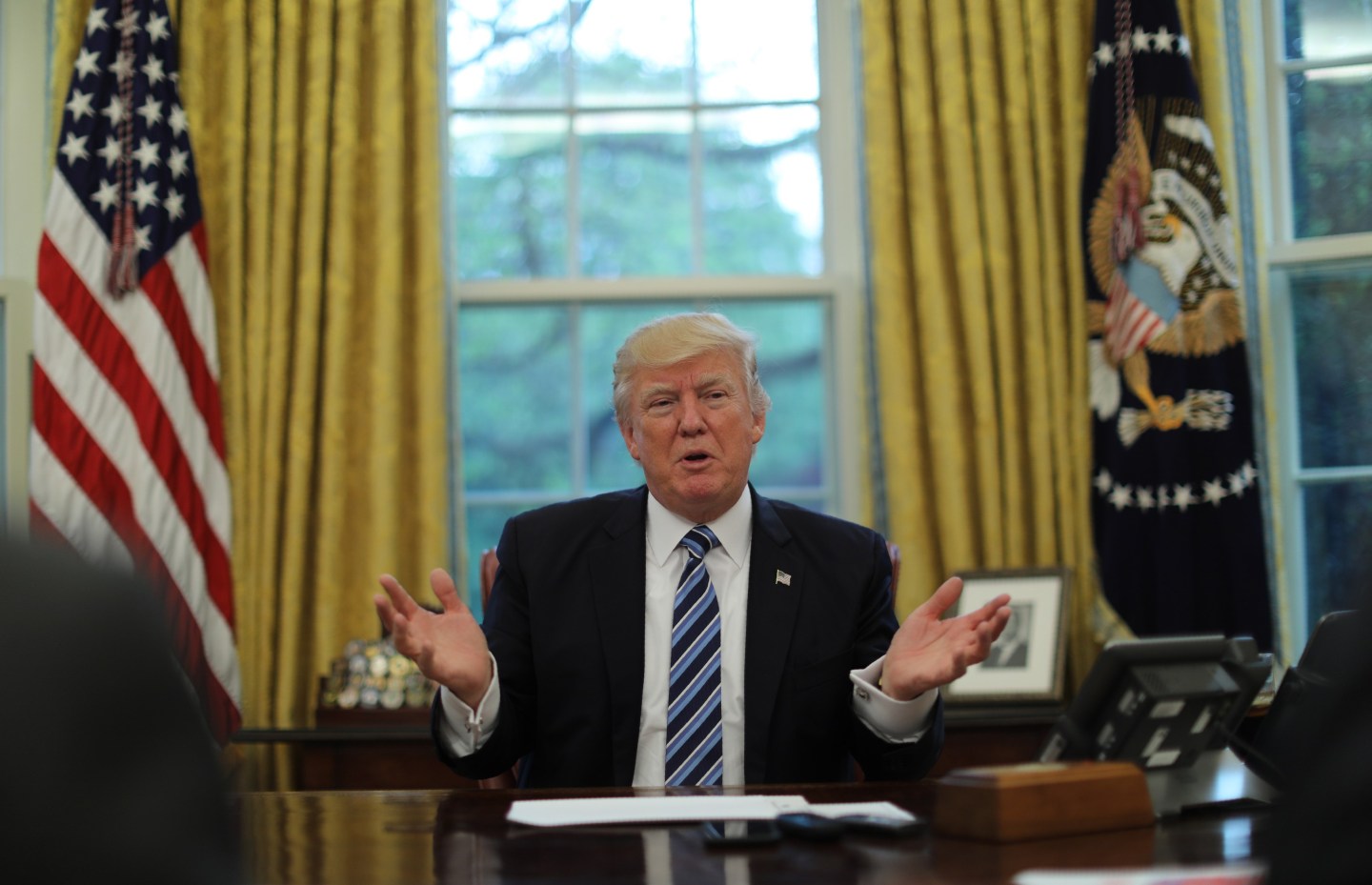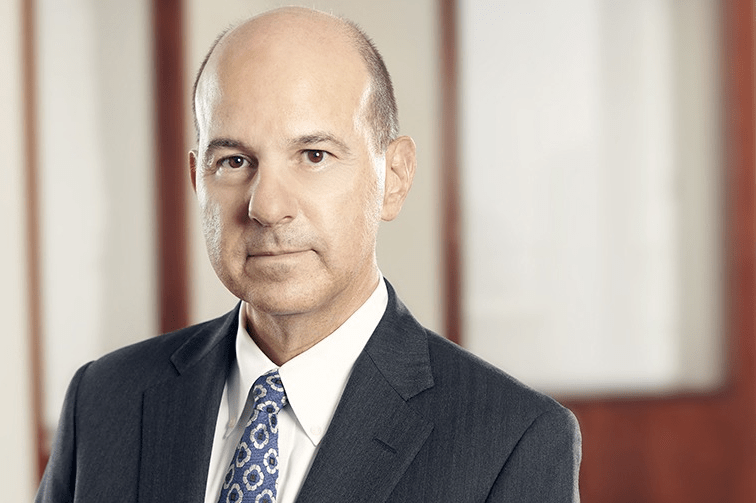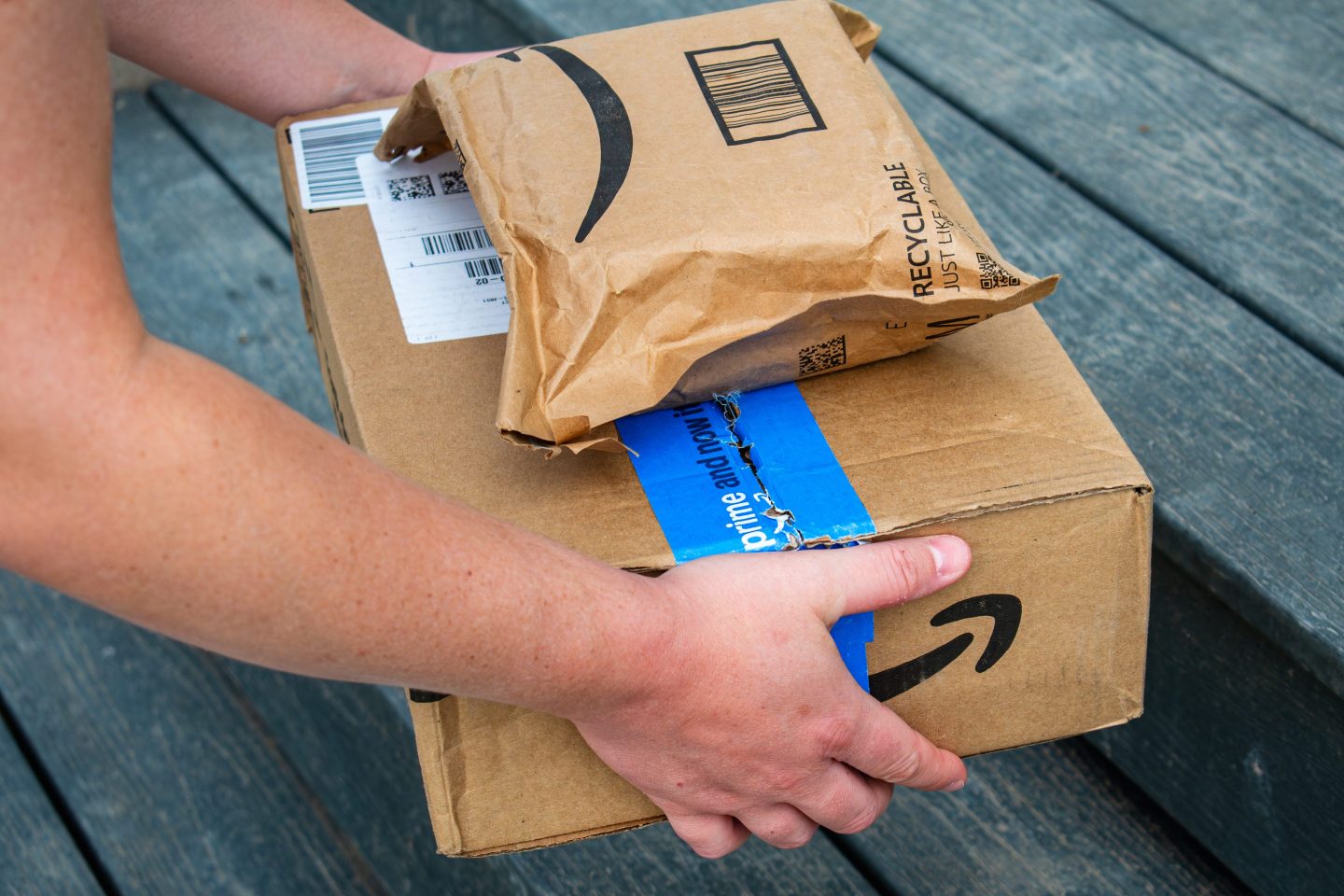U.S. President Donald Trump told Reuters on Thursday he will either renegotiate or terminate what he called a “horrible” free trade deal with South Korea and said Seoul should pay for a U.S. anti-missile system that he priced at $1 billion.
In an interview with Reuters, Trump called the five-year-old trade pact with South Korea “unacceptable” and said it would be targeted for renegotiation after his administration completes a revamp of the North American Free Trade Agreement (NAFTA) with Canada and Mexico.
He blamed the U.S.-Korean trade deal, known as KORUS, on his 2016 Democratic presidential election opponent, Hillary Clinton, who as secretary of state promoted the final version of the trade pact before its approval by Congress in 2011.
“It is unacceptable, it is a horrible deal made by Hillary,” the Republican Trump said. “It’s a horrible deal, and we are going to renegotiate that deal or terminate it.”
Asked when he would announce his intention to renegotiate the deal, Trump said: “Very soon. I’m announcing it now.”
Trump’s comments stunned South Korean financial markets, sending Seoul stocks and the won currency into reverse even as the country’s economic outlook has started to brighten.
With global demand improving, exports of goods such as cars and electronics have been leading a recovery in South Korea and a number of other trade-reliant Asian economies such as Japan and Taiwan, boosting their manufacturing sectors.
“Talk and actual policy are different,” a high-ranking official at South Korea’s finance ministry, who declined to be named as he was not authorized to speak to the media, told Reuters. “They (the Trump administration) have not requested anything from us so we’ll have to wait and see.”
KORUS was initially negotiated by the Republican administration of President George W. Bush in 2007, but that version was scrapped and renegotiated by President Barack Obama’s Democratic administration three years later.
The U.S. goods trade deficit with South Korea has more than doubled since KORUS took effect in March 2012, from $13.2 billion in 2011 to $27.7 billion in 2016, according to U.S. Census Bureau data.
THAAD PAYMENT
Trump said the Terminal High-Altitude Area Defense (THAAD) missile system now being deployed in South Korea to defend against a potential missile attack from North Korea would cost about $1 billion and questioned why the United States was paying for it.
“I informed South Korea it would be appropriate if they paid. It’s a billion-dollar system,” Trump said. “It’s phenomenal, shoots missiles right out of the sky.”
Asked about the remarks, South Korea’s defense ministry said in a statement there is no change to the existing agreement that Seoul provides land for the deployment while Washington shoulders the cost of installing and operating the system.
A top foreign policy adviser to South Korean presidential front runner Moon Jae-in told Reuters that Trump’s suggestion would be an “impossible option” because the U.S. military operates the system.
The U.S. military started the deployment of THAAD in early March, despite strong opposition from China, which worries the system’s powerful radar can be used to spy into its territory. Moon, the favorite to win South Korea’s presidential election on May 9, has called for deployment to be delayed until after the next administration is in place and can review the decision.
Lockheed Martin (LMT) is the prime contractor for the THAAD system.
A former U.S. State Department official estimated the cost of the system at about $1.2 billion but said the United States would not want to sell THAAD to Seoul.
“We want to retain THAAD in our arsenal, consistent with all other U.S. weapons systems deployed on the Korean peninsula. We own them. We retain them. We have the right to redeploy them,” the official said, speaking on condition of anonymity.











